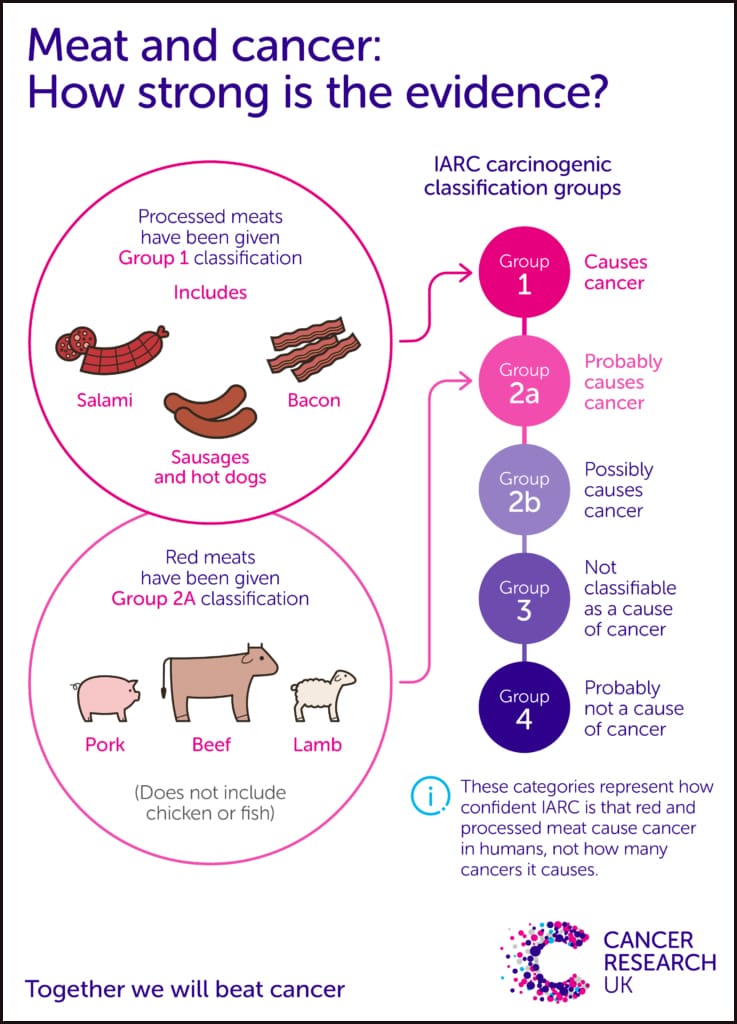Processed meats like bacon, sausage, and hot dogs have become household favourites for their taste and convenience, but growing evidence highlights serious health concerns associated with these foods. Linked to increased risks of cancer, heart disease, obesity, and digestive issues, processed meats are often loaded with sodium, unhealthy fats, and additives such as nitrates that may harm the body over time. This article uncovers the hidden dangers of these popular staples while offering insights into healthier alternatives that can support a balanced diet and improved well-being
Processed meats such as bacon, sausage, and hot dogs have long been a staple in many diets, loved for their convenience and delicious taste. However, in recent years, these types of meats have come under scrutiny for their potential negative effects on our health. With concerns about cancer, heart disease, and other health issues, many people are questioning just how harmful these processed meats really are. In this article, we will delve into the research and answer the question: just how harmful are processed meats? We will explore the ingredients and methods used in processing these meats, as well as the potential health risks associated with consuming them. We will also discuss the different types of processed meats and their varying levels of harm. By the end of this article, you will have a better understanding of the impact that these popular foods may have on your health and be equipped to make more informed decisions about your diet. So, let’s dive in and discover the truth about processed meats and how they may be affecting our bodies.
Processed meats linked to cancer
Numerous studies have indicated a concerning association between the consumption of processed meats and an increased risk of developing certain types of cancer. Processed meats include popular favorites such as bacon, sausage, and hot dogs, but the health implications go beyond their irresistible taste. The World Health Organization (WHO) has classified processed meats as Group 1 carcinogens, putting them in the same category as tobacco and asbestos. This classification highlights the strong evidence linking these products to an elevated risk of colorectal cancer. The harmful effects are believed to be attributed to the processing methods used, which often involve curing, smoking, or adding preservatives. These processes can result in the formation of harmful chemicals, including nitrosamines and polycyclic aromatic hydrocarbons, which are known to be carcinogenic. Consequently, it is crucial to be mindful of the potential risks associated with the regular consumption of processed meats and to explore healthier alternatives.

High in sodium and fat
Processed meats are not only potentially harmful due to their link to cancer, but they are also high in sodium and fat. These two factors contribute to various health concerns, such as cardiovascular diseases and hypertension. Excessive sodium intake can lead to increased blood pressure, putting strain on the heart and increasing the risk of heart attacks and strokes. Additionally, the high fat content in processed meats, particularly saturated and trans fats, can contribute to elevated cholesterol levels and weight gain. It is important to be aware of the nutritional content of processed meats and consider healthier alternatives to minimize the negative impact on our overall well-being.
Increase risk of heart disease
Numerous studies have demonstrated a clear association between the consumption of processed meats and an increased risk of heart disease. These products, including bacon, sausage, and hot dogs, tend to be high in unhealthy fats, particularly saturated fat and cholesterol. Regular consumption of these fats can lead to the build-up of plaque in the arteries, a condition known as atherosclerosis, which can restrict blood flow to the heart. Furthermore, processed meats often contain high levels of sodium, which can contribute to elevated blood pressure, another significant risk factor for heart disease. It is crucial to be mindful of the potential detrimental effects of processed meats on cardiovascular health and consider incorporating healthier protein sources into our diets.

May contain harmful additives
While processed meats may be a popular choice for many due to their convenience and taste, it is important to be aware of the potential presence of harmful additives in these products. Manufacturers often use additives such as nitrates, nitrites, and various preservatives to enhance flavor, extend shelf life, and maintain the appealing color of processed meats. However, some of these additives have been linked to adverse health effects. For instance, certain studies have suggested a possible connection between nitrites and an increased risk of certain cancers. Additionally, excessive consumption of preservatives like sodium benzoate or sodium nitrite can potentially lead to negative health outcomes. Therefore, it is advisable to carefully read labels and consider alternative, less processed options to minimize exposure to potentially harmful additives present in processed meats.
Linked to digestive problems
Processed meats have also been associated with digestive problems. Due to their high fat and sodium content, these products can contribute to digestive issues such as bloating, gas, and constipation. The excessive intake of processed meats can cause the digestive system to work harder to break down and digest these heavy and processed foods. Furthermore, the additives and preservatives used in processed meats may disrupt the natural balance of gut bacteria, leading to further digestive discomfort. It is important to consider the potential impact on digestive health when consuming processed meats and to prioritize whole, unprocessed alternatives for a healthier gastrointestinal system.
Can lead to weight gain
Consuming processed meats can potentially lead to weight gain. These products are often high in calories, saturated fats, and sodium, which can contribute to excess weight and body fat accumulation. Additionally, processed meats are typically low in essential nutrients and fiber, leaving you feeling less satisfied and more likely to overeat in order to feel satiated. The frequent consumption of processed meats can also disrupt hormone regulation and increase cravings for unhealthy foods, further contributing to weight gain. Therefore, it is important to be mindful of the quantity and frequency of processed meat consumption in order to maintain a healthy weight and overall well-being.

Consider plant-based alternatives
In addition to choosing leaner options, considering plant-based alternatives can be a beneficial approach when it comes to reducing the consumption of processed meats. Plant-based alternatives, such as tofu, tempeh, seitan, and legumes, offer a wealth of nutrients and are often lower in saturated fat and cholesterol compared to their processed meat counterparts. These alternatives can be used as substitutes in various dishes, providing a satisfying texture and flavor. Additionally, incorporating more plant-based protein sources into the diet can offer a range of health benefits, including a reduced risk of certain chronic diseases and improved overall well-being. Exploring plant-based alternatives can be a step towards diversifying one’s diet and embracing a more sustainable and health-conscious eating pattern.

Limit consumption for better health
To maintain better health, it is crucial to limit the consumption of processed meats such as bacon, sausage, and hot dogs. These types of meats are often high in sodium, unhealthy fats, and preservatives, which can increase the risk of various health issues, including heart disease, type 2 diabetes, and certain types of cancer. Studies have shown a direct correlation between the consumption of processed meats and adverse health outcomes. Therefore, it is advisable to opt for leaner protein sources, such as poultry, fish, beans, and legumes, which provide essential nutrients without the harmful additives. By making conscious choices to limit the intake of processed meats, individuals can contribute to their overall well-being and reduce the potential risks associated with their consumption.
In conclusion, while processed meats may be a tasty and convenient option, it is important to be aware of their potential harmful effects on our health. Moderation and balance are key when it comes to incorporating processed meats into our diet. By choosing leaner options, reducing our consumption, and balancing it with a variety of whole, unprocessed foods, we can still enjoy these foods while minimizing any potential negative impacts. It is always important to prioritize our health and make informed choices when it comes to our diet.
3.8/5 - (21 votes)



